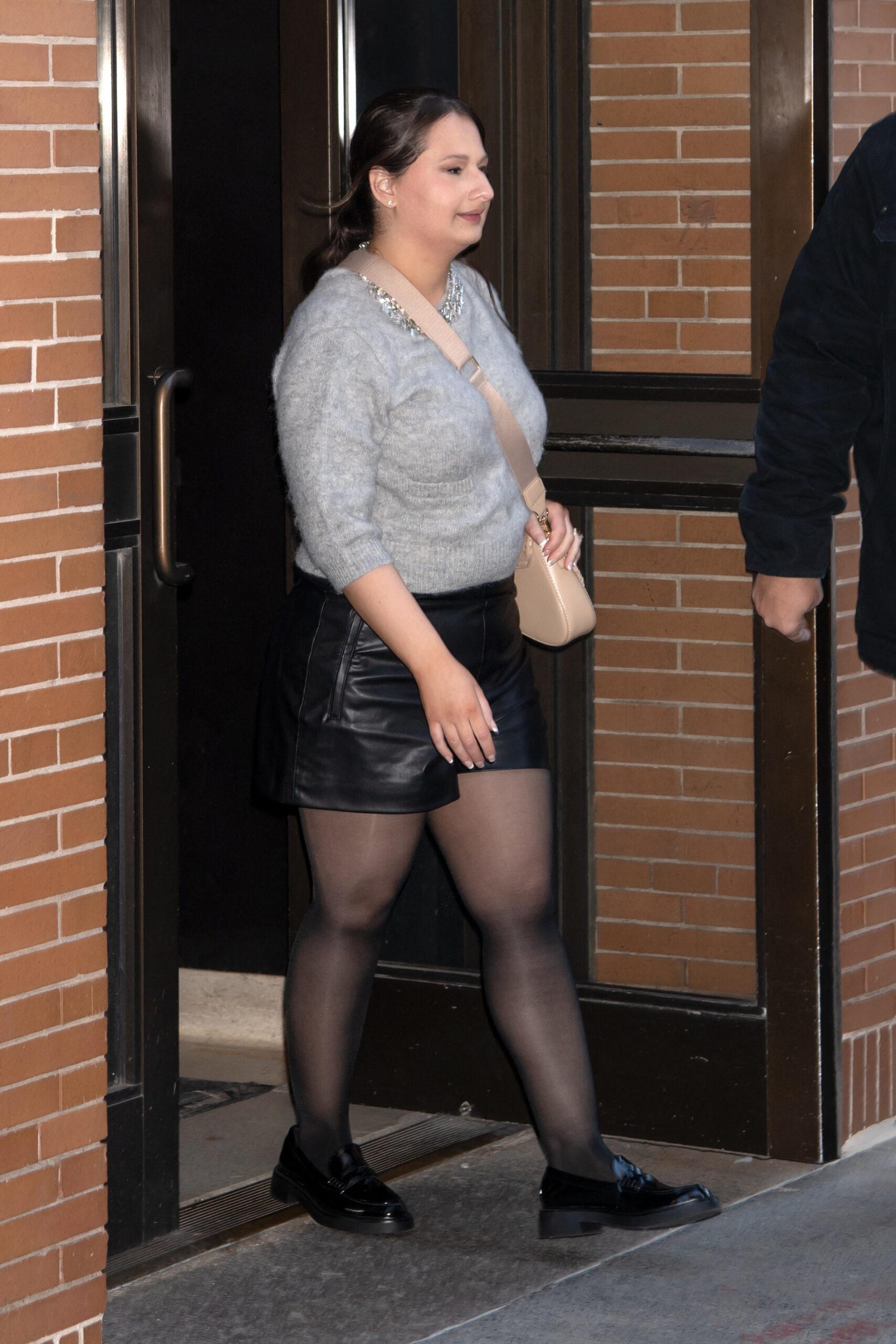Gypsy Rose Blanchard Opens Up About Cellmate's Disturbing Obsession
By Kelly Coffey-Behrens on December 12, 2024 at 2:30 PM EST

Gypsy Rose Blanchard is reclaiming her voice with the release of her memoir, "My Time to Stand."
In the candid book, Gypsy revisits the harrowing abuse she endured at the hands of her mother, Dee Dee, whose alleged Munchausen by proxy kept Gypsy trapped in a fabricated life of illness and control. The ex-con delves into the fateful night Dee Dee was killed, the events that led to her incarceration, and the complexities of her journey toward freedom.
With this memoir, Gypsy Rose Blanchard shares her story like never before, offering readers an intimate look at her past and the resilience that brought her to where she is today.
Gypsy Rose Recalls Her Prison Days

Gypsy Rose Blanchard spent her first year of incarceration in Missouri's Greene County Jail, enduring a harsh and challenging environment. "County jail is a despicable place. It was dirty and crowded, the food was expired and toxic, and the people were ruthless, no matter the tier they were on," she explained in her book. "Roommates came and went. I never knew what the next naked lady would do."
The now 33-year-old recounts a lineup of memorable cellmates during her time in prison—one who howled at the moon, another who conversed with the wall, and one who repeatedly struck her own head while muttering curses. Yet, she recalls one inmate who outdid them all: a woman who, as Blanchard puts it, "liked to play in her own poop."
Gypsy Rose's Cellmate Had A Weird Obsession

Gypsy added, "When you are under this type of watch, you don’t leave the cell. There isn’t even one hour of rec time in a yard. We only were allowed one ten-minute phone call a day and one shower. So, pretty much all day long, I was forced to watch my naked roommate delight in her excrement. As if it were Play-Doh, y’all."
It got so bad that Gypsy "had to bribe her to stop, promising I don’t remember what, because the stench made me hurl." "The whole scene, upon reflection, was unjust," she added. "Some of these people were so far gone, it was hard to believe they were cognizant enough to commit any crime."
"I was horrified, confused, and trapped like this for four months," she wrote in the book. "For a few days, I wondered if I should put my smock to use. I looked closely on the walls, around the bunk beds, on the ceiling, for high enough places I could tie it to."
She was later transferred to the Chillicothe Correctional Center, a facility known for being less severe, where she served eight years of her 10-year sentence.
Gypsy Rose's New Memoir Is A Tell-All

"My Time to Stand" by Gypsy Rose Blanchard, co-written with Melissa Moore and Michele Matrisciani, was released by BenBella Books on December 10. "You want to do your story [justice]," she told PEOPLE Magazine, reflecting on her writing process. "You want to tell it with as much honesty and vulnerability as possible. So it was quite a rollercoaster ride."
"It raised a lot of emotions and I brought it up with my therapist," she admitted. "I had to reopen the wounds, then go back into therapy and then heal them again."
But, after some time, she came to the conclusion of, "I'm like, okay, that was a part of my life, but that's just part of me. That's how I became who I am today. Every facet of my personality, how I think, how I react to things, how I make judgments, it's all based on what I have learned from the past."
A Look Back At Gypsy Rose Blanchard's Childhood

Gypsy Rose Blanchard's childhood was marked by manipulation, medical abuse, and isolation, largely orchestrated by her mother, Dee Dee Blanchard.
Born on July 27, 1991, in Golden Meadow, Louisiana, Gypsy was subjected to a fabricated medical narrative from an early age. Dee Dee claimed Gypsy suffered from a host of severe conditions, including leukemia, muscular dystrophy, and epilepsy, among others, though Gypsy was physically healthy.
Dee Dee Blanchard Is Believed To Have Munchausen By Proxy

Dee Dee controlled every aspect of Gypsy's life, confining her to a wheelchair, shaving her head to mimic the appearance of a chemotherapy patient, and subjecting her to unnecessary medical treatments, including surgeries and medications. Gypsy was home-schooled for much of her life, further isolating her from peers and the outside world. This control extended to Gypsy’s diet, interactions, and even her ability to speak for herself during doctor visits.
Over time, Gypsy became aware that she was not as ill as her mother claimed. This realization, combined with years of psychological and emotional abuse, set the stage for the tragic events that would later unfold in her life.
If you or someone you know is struggling with thoughts of suicide, help is available. Call the 988 Suicide and Crisis Lifeline by dialing 988, text "STRENGTH" to the Crisis Text Line at 741741, or visit 988lifeline.org.